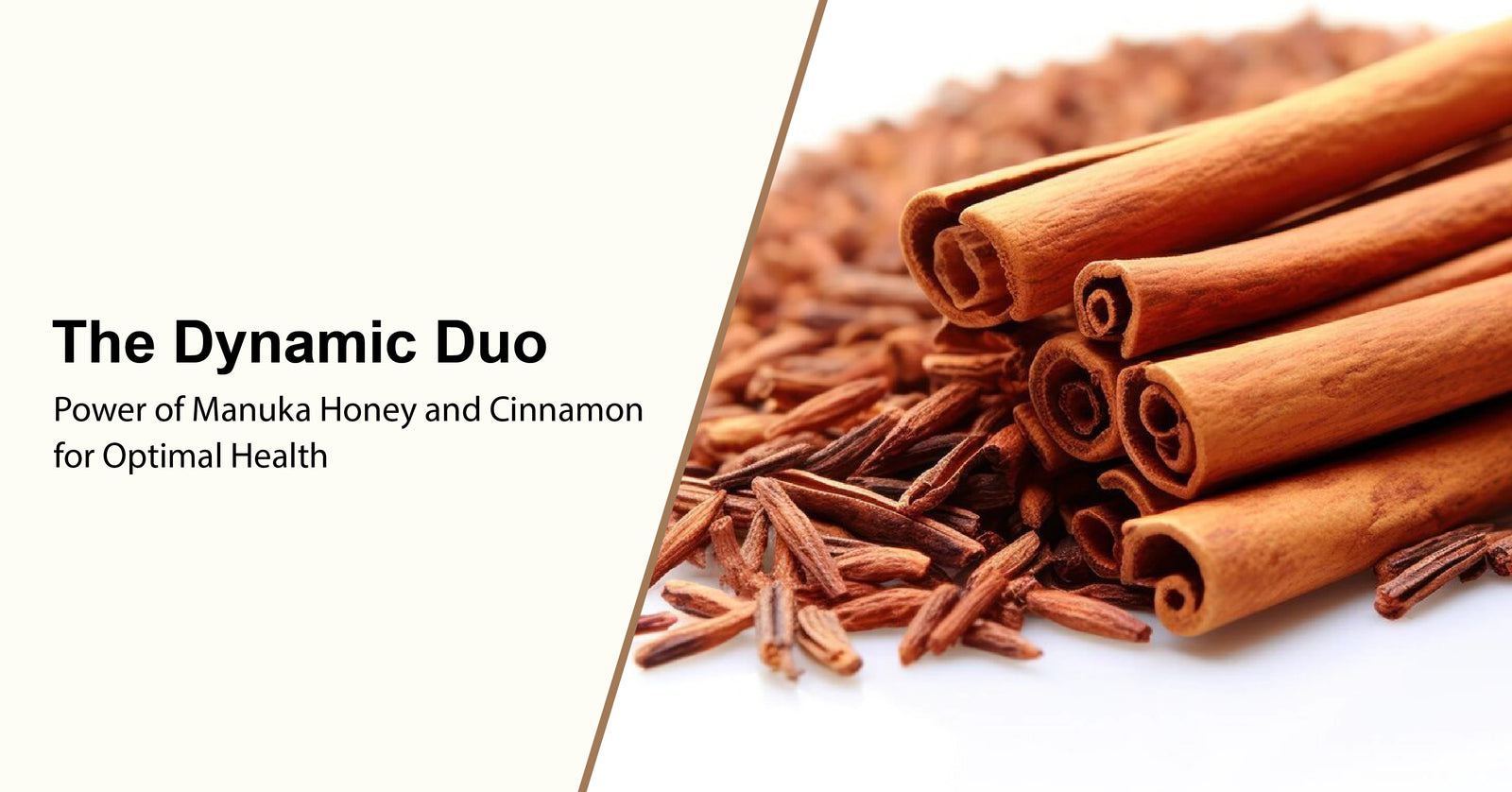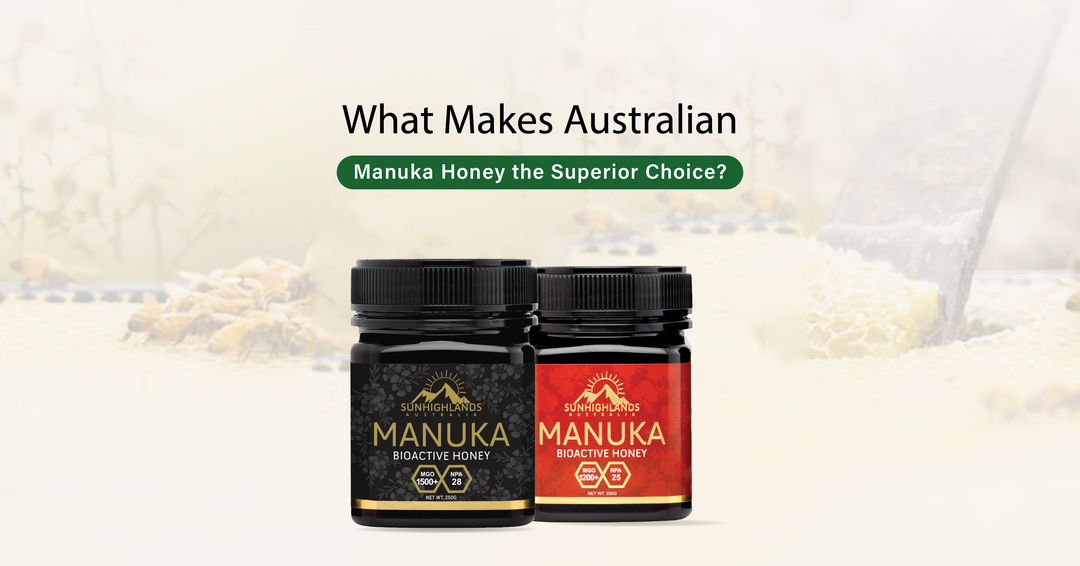Manuka Honey and Cinnamon Drink: Health-Boosting Benefits

Manuka honey is a superstar syrup that is gaining popularity in the wellness world due to its potent health benefits. When paired with the warmth of cinnamon, this dynamic duo creates a flavorful and potentially healthy mixture.
Let's embark into the world of Manuka honey and cinnamon, uncovering their individual strengths and how they might work together to enhance your well-being.
Manuka Honey: Nature's Nectar with a Punch
Hailing from down under, Manuka honey is produced by bees that feed on the nectar of the Manuka bush (Leptospermum scoparium). This liquid gold is different from other honeys because of the presence of a unique compound called methylglyoxal (MGO).
MGO is believed to be responsible for Manuka honey's antibacterial and antimicrobial properties. The strength of this remarkable honey is often measured by its MGO rating.
As a rule of thumb, higher MGO ratings generally indicate a stronger antibacterial punch. While scientists are still researching the many benefits of Manuka honey, some studies suggest it might be effective against:
- Staphylococcus aureus (staph): A common bacterium responsible for various skin infections.
- Helicobacter pylori (H. pylori): A bacterium linked to stomach ulcers.
- Streptococcus pyogenes (strep throat): The bacteria causing strep throat.
Manuka honey's potential benefits extend beyond its antibacterial properties. Studies suggest it might also:
- Wound warrior: Manuka honey's antimicrobial properties and anti-inflammatory effects might aid wound healing.
- Soothe sore throats: The calming properties of honey, along with Manuka honey's potential to fight bacteria in the throat, might offer relief for sore throats.
- Boost the immune system: Some studies suggest that honey consumption might enhance immune function.
Important Note
While Manuka honey shows promise for various health conditions, it's important to consult with a doctor before using it for medicinal purposes.
Cinnamon: A Spice with Ancient Roots
Cinnamon, a fragrant spice obtained from the inner bark of several trees belonging to the genus Cinnamomum, has been used for centuries in traditional medicine. There are two main types of cinnamon commonly available:
- Ceylon cinnamon: Considered the "true" cinnamon, Ceylon cinnamon boasts a delicate sweetness and aroma.
- Cassia cinnamon: More common and stronger in flavour, cassia cinnamon contains higher levels of coumarin, which can be harmful in large quantities.
Cinnamon's potential health benefits are attributed to its content of various bioactive compounds, including cinnamaldehyde. Studies suggest cinnamon might:
- Blood Sugar Regulator: Cinnamon may help keep blood sugar in check by improving insulin sensitivity.
- Inflammation Fighter: Cinnamon's anti-inflammatory properties might be beneficial for various conditions.
- Aids digestion: Cinnamon might help alleviate digestive discomfort.
Choosing the Right Cinnamon
When combining cinnamon with Manuka honey, opt for Ceylon cinnamon due to its lower coumarin content.
Manuka Honey and Cinnamon Drink: A Delicious and Potentially Beneficial Brew
A Manuka honey and cinnamon drink is a simple and delightful way to potentially reap the benefits of these two ingredients. Here's a basic recipe:
- 1 tablespoon high-quality Manuka honey (MGO 100+ recommended)
- 1/2 teaspoon Ceylon cinnamon powder
- 1 cup warm water (not boiling)
Instructions
- Add the cinnamon powder to a mug.
- Pour warm water over the cinnamon.
- Stir until the cinnamon dissolves.
- Add the Manuka honey and stir well to combine.
Tips
- You can adjust the amount of cinnamon and honey to your taste preference.
- For a creamier drink, you can add a splash of milk or a plant-based milk alternative.
- Lemon or ginger can be added for a zesty twist.
- Enjoy this soothing drink warm, especially before bedtime or when experiencing a sore throat.
Precautions and Considerations
While Manuka honey and cinnamon are generally safe for most people in moderate amounts, here are some things to keep in mind:
Manuka Honey
- Diabetics: Due to its natural sugars, consume Manuka honey in moderation and monitor blood sugar levels.
- Infants: Honey should not be given to children under 1 year old due to the risk of infant botulism.
- Allergies: Some people might be allergic to honey. If you experience any allergic reactions after consuming Manuka honey, discontinue use and consult a healthcare professional.
Cinnamon
- Pregnancy: High doses of cinnamon might be unsafe during pregnancy. Consult a doctor before consuming large amounts of cinnamon if pregnant or breastfeeding.
- Liver disease: Individuals with liver disease should exercise caution with cinnamon consumption due to potential interactions with certain medications.
- Medications: Cinnamon might interact with some medications, such as blood thinners. Consult a doctor before consuming large amounts of cinnamon if taking any medications.
The Bottom Line
Manuka honey and cinnamon are two powerful ingredients with a rich history of traditional medicinal uses. While research on their combined effects is ongoing, they hold promise for various potential health benefits.
Whether you enjoy them separately or combine them in a delicious and soothing drink, adding these two ingredients to your daily diet can be an enjoyable way to discover their potential for promoting overall well-being.
Remember, moderation is key, and it is always better to consult a healthcare professional before using them for medicinal purposes.
Additional Notes
- Look for high-quality, genuine Manuka honey with an MGO rating of 100 or higher to maximize potential benefits.
- Ceylon cinnamon is the preferred choice due to its lower coumarin content.
- By understanding the individual properties of Manuka honey and cinnamon, along with potential benefits and considerations, you can make informed decisions about incorporating them into your wellness routine.





